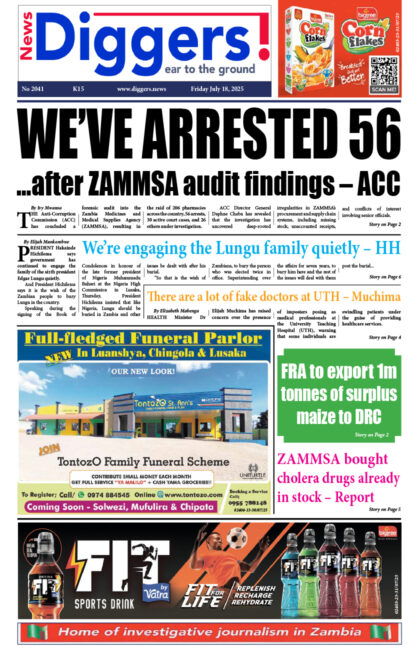Mines Minister Richard Musukwa has said screening conducted on mine workers between 2017 and 2018 has shown an increase in lung diseases.
Delivering a keynote address at the first Pan-African Occupational Health and Safety Conference in Johannesburg, South Africa, themed “Occupational Safety and Health in Africa: Challenges and Actions”, Nkhuwa said over 5,000 mine workers have been screened for different occupational lung diseases, a procedure that has shown a rise in infections related to work in the mining industry.
According to Musukwa, the screening was done at the newly established Regional Centre of Excellence at the Occupational Health and Safety Institute in Kitwe, which was accessible to all SADC member countries as it had state-of the- art reading machines and highly trained occupational medical practitioners.
He said Zambia had strengthened mine health regulations by revising some laws that were prohibitive and increased the risk of infections in the mining industry.
Musukwa urged member countries of the Occupational Safety and Health Organization, employers and workers to work together in fighting injustices caused by poor occupational health and safety accidents.
And the minister said mining-related environmental liabilities have the potential to erode economic benefits the industry has achieved in many African countries, including Zambia.
Musukwa said environmental liabilities resulting from the use of mercury in mineral processing could negatively affect communities and cause health problems for people.
He further observed that small-scale mining in Africa was complex and a critical sector that needed government’s intervention to address many safety and health challenges it was facing.
Musukwa said most Artisanal small scale mining in African countries was faced with poor health and sanitation facilities as well as high prevalence of communicable diseases such as Silicosis, Tuberculosis and HIV/AIDS.
The conference organized by the New Partnership for Africa’s Development (NEPAD), African Union, International Labour Organization and World Bank saw 800 delegates participating.



















